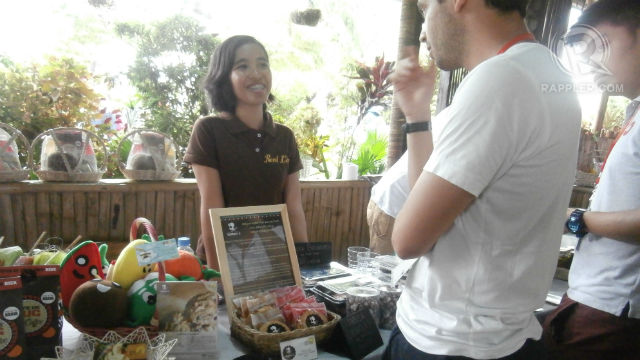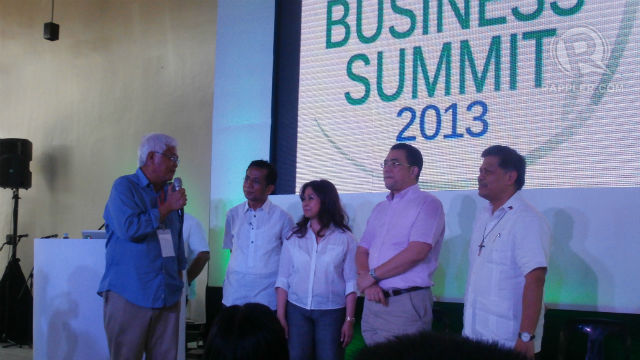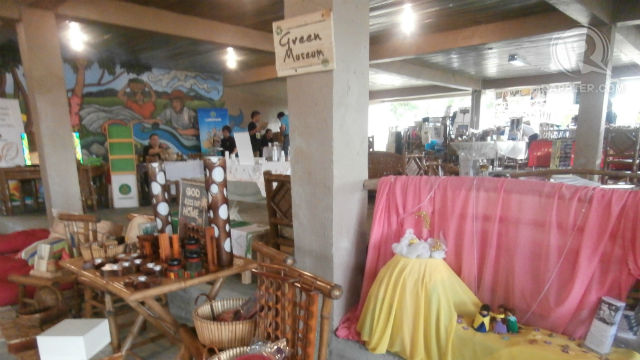SUMMARY
This is AI generated summarization, which may have errors. For context, always refer to the full article.
MANILA, Philippines – How can social businesses help improve the agricultural sector? What is the role of the two in national economic development?
For social entrepreneur Virginia de Villa, it’s all about chocolates.
De Villa is co-owner and co-founder of Real Cacao, a social enterprise that aims to create world-class Filipino chocolates while giving opportunities to cacao farmers around the Philippines.
A recent graduate of Ateneo de Manila University, De Villa said social enterprise is her group’s way of helping build the nation.
“As a social enterprise, we are challenged not just to think of creating products but to also think of how we can make a dent in the industry if we want to bring as many communities as we can out of poverty,” she said.
De Villa said their company wants to help end poverty in the agricultural sector.
“One of the many issues our cacao farmers face is the lack of access to post-harvest facilities which will enable them to create value-adding cacao products,” she added.
“My dream is that someday our farmers can say with dignity, ‘We are farmers’ instead of saying, ‘We are only farmers’,” De Villa said in Filipino.
Social business summit
On October 3 to 5, social entrepreneurs like De Villa, potential investors, students and farmers came together in the Social Business Summit (SBS) 2013 at the Gawad Kalinga Enchanted Farm in Angat, Bulacan to talk about the role of social businesses and agriculture in the country’s development.
Gawad Kalinga Founder and Chairman Tony Meloto said the summit encouraged Filipinos to create wealth locally rather than look for it abroad.
Speaking to overseas Filipino workers, Meloto said, “This is the best time to build businesses in the Philippines. We want to restore your (overseas Filipino workers’) trust in our country.”
Speakers from the private sector and government agencies also discussed different initiatives in alleviating poverty and promoting inclusive growth. The summit promoted new business start-ups that empower the agricultural sector.
Emphasis on agriculture
In the plenary session on October 3, Agrarian Reform Secretary Virgilio Delos Reyes said that farming still offers the most immediate productivity to increase the poor’s output. He added that smaller farm lands create better opportunities.
“Small is the reality and it is beautiful…the smaller farms usually have the efficiency aspect,” he said.
The Philippines has a total agricultural land area of 9.671 million hectares. The farmer sector accounts for the largest share in the labor force with 32% of the workforce in agricultural jobs.
Despite these numbers, the farming sector is still one of the poorest in the country.
Delos Reyes admitted that there is much work to be done in the country’s agrarian reform system, given problems encountered in the past.
“The same land reform system had been the cause of land grabbing in the past. Poor people still have problems getting their titles…We look at the past to see the wrongs we want to correct,” he said.
Meloto also said that agriculture is the future of the country. “Our wealth lies in the land that we abandoned.”
Change paradigms
In the same session, Education Secretary Bro Armin Luistro said education plays a key role in solving poverty. He added that Philippine education should be community-based.
“If the Department of Education (DepEd) were to build traditional schools and box education, we would have graduated all Pinoys in no time. But there are communities that do not fit the box,” Luistro said.
He said the curriculum must be shifted from Western centrism to one that values Philippine history and perspective.
“Our education system is very Western centric…We create books that are alien to our culture…The subjects taught alienate our students from their communities,” Luistro added.
Luistro also noted that social enterprises must always be seen as an alternative.
“If our students cannot find jobs, we should prepare them for small business ventures,” he said.
All hands on deck
National Economic Development Authority (NEDA) Director-General Arsenio Balisacan emphasized the need for all stakeholders’ support to achieve inclusive growth.
“We need to get all actors together to work for one goal — to generate jobs for the poor and reduce poverty,” he said.
He added that development paths like social enterprises must be sought to eliminate poverty. Balisacan also said that education is an essential part of development.
“Human capital investments are needed to increase labor productivity and boost competitiveness,” he noted.
The SBS ended with GK’s 10th anniversary expo, showcasing efforts and initiatives of various social agricultural enterprises and business startups.-Rappler.com
Add a comment
How does this make you feel?



There are no comments yet. Add your comment to start the conversation.